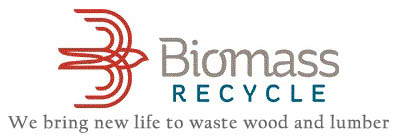|
|

|
  
Features
Update 2018/2/1
First Nation Water
INDIGENOUS SERVICES CANADA COMMITTED TO MARCH 2021 GOAL AS RESPONSIBILITY GROWS
This story is brought to you in part by

By Cori Marshall
Last August Prime Minister Justin Trudeau announced that Indigenous and Northern Affairs Canada (INAC) would be dissolved and two new departments would be created, Crown-Indigenous Relations and Northern Affairs Canada (CIRNAC) and Indigenous Services Canada (ISC). The two new creations would be distinct yet would compliment each other.
ISC is tasked with working "with partners to improve access to high quality services for First Nations, Inuit and Métis," as well as "support and empower Indigenous peoples to independently deliver services and address the socio-economic conditions in their communities."
In Budget 2016, the federal government set aside $1.8 billion to repair, maintain water and wastewater systems in First Nations communities, as well as provide training for individuals to operate those systems. The Trudeau government also set the goal of ending all long-term water advisories in these communities by March 2021.
ISC also oversees the public drinking water systems in Indigenous communities, and at the end of 2017 was monitoring approximately 800 systems, 67 of which were under a long-term water advisory. In January of this year the number of drinking water systems on a long-term advisory rose to 91, and the number of systems that ISC monitors now stands at 1,047.
We spoke with the Minister of Indigenous Services, Jane Philpott, to find out why numbers are rising.
There were water systems not the responsibility of INAC though they could be considered public, Minister Philpott explained "systems such as community centres and nursing stations." ISC "went through all of the water systems on-reserve and determined that there was a group of 247 systems," that were not previously monitored, and ISC "felt it was reasonable to do so."
"Of the 247 systems that now fall under the responsibility of ISC, 24 had long-term water advisories," Minister Philpott said. ISC has decided to take on the additional systems, and "now there are 91 systems that we are tracking very closely as well as a small group of systems we feel are at risk." ISC is also supporting the communities to ensure the systems that are at risk do not fall into the long-term category.
We asked if the $1.8 billion would be enough to address all of the water issues in Indigenous communities. "This is the first time there has been long-term funding put in place, (approximately) $700 million has been spent," the Minister said. There still is money to address the water need of these communities and ISC is determined to fulfil the Prime Minister's promise of end all long-term advisories.
This story is brought to you in part by Hatch
Minister Philpott added that "at this point, we believe we have the resources needed, (...) if additional resources are required we will stand by our commitment and make sure the work gets done."
Some are concerned that addressing the water issues in Indigenous communities is not advancing as fast as it could, we asked the Minister about the pace and what are the challenges they face in carrying out their task.
Minister Philpott responded, "if it were easy, others probably would have done it before us, (the Liberal government) has addressed this in a comprehensive way that ensured there is long-term funding in place." She continued "many of these new (water) systems may take two or three years from the time a design is selected, finding the appropriate site, getting the right materials in place, construction, and training for water operators."
"They are not small undertakings and often (water systems) are being designed and built for some of the most remote regions of the country and we knew this is not something that could be done overnight, with a serious long-term, well supported plan we will be able to achieve our targets."
Jane Philpott, Minister of Indigenous Services
With a little more than three years remaining, we wanted to know with the responsibility of additional water systems, and the challenges being faced, if the March 2021 goal is still feasible. Minister Philpott said, "absolutely, we are very firm in that, the Prime Minister has made the commitment, with an entire department now focused on Indigenous Services where we can dig into the issues that affect the lives of First Nations people."
The Minister is updated on potential challenges weekly, "there is a very detailed plan for every single system that has a long-term drinking water advisory, and we are absolutely firm in our resolve to reach our target."
cori.m@watertoday.ca
|
|
|
Have a question? Give us a call 613-501-0175
All rights reserved 2025 - WATERTODAY - This material may not be reproduced in whole or in part and may not be distributed,
publicly performed, proxy cached or otherwise used, except with express permission.
|
| |